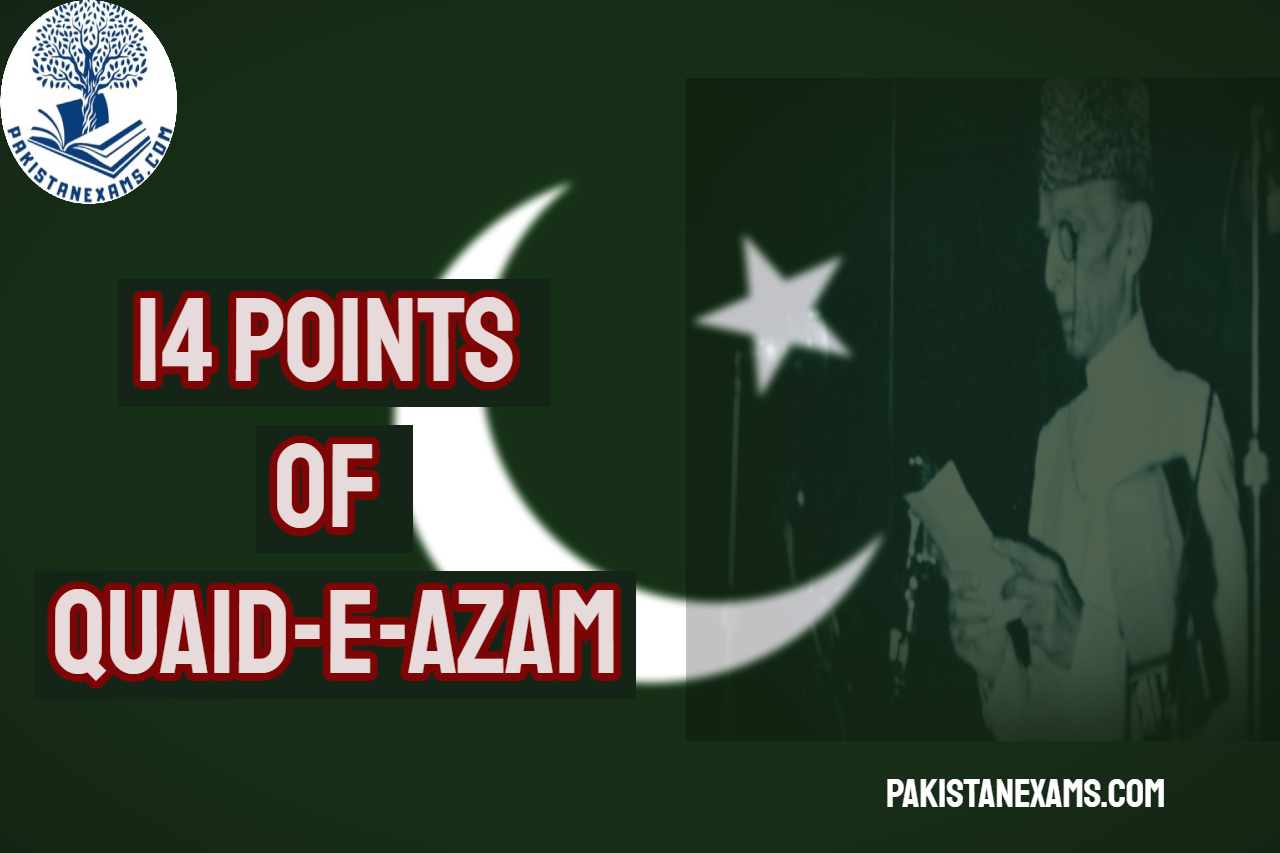Background
Nehru Report was against the demands of Muslims according to their Delhi Proposals. Therefore, Jinnah offered his suggestions in the form of Fourteen Points in March 1929, to counter the recommendations given in the Nehru Report. Moreover, in these points he insisted that no scheme for the future constitution of the government of India will be satisfactory to the Muslims until and unless provisions were made, that intended to protect Muslims’ interests.
Salient Features of the Fourteen Points
- Future constitutions should be federal in form, with the provinces assuming the residuary powers.
- Each province will be given the same autonomy.
- The clear principle of adequate and effective representation of minorities in each province, without reducing the majority to a minority or even equality, shall govern the constitution of all national legislatures and other elected bodies.
- The percentage of Muslims represented in the Central Legislature must not fall below one-third.
- Separate electorates will still be used to represent communal groups, but any community can decide to move to a joint electorate at any moment.
- The Muslim majority in Punjab, Bengal, and the NWFP will not be impacted in any manner by any territorial redistribution that may be required at any point.
- Every community shall be granted complete religious liberty, which includes freedom of belief, worship, observance, propaganda, association, and education.
- If three-fourths of the members of any community in that particular body oppose a bill, resolution, or part of a bill on the grounds that it would be unfavorable to that community, no bill, resolution, or any part of it shall be passed in any legislature or any other elected body in such cases.
- It is necessary to keep Sindh separate from the Bombay Presidency.
- Reforms ought to be implemented in the NWFP and Balochistan on an equal basis with other provinces.
- A provision granting Muslims a sufficient portion, in proportion to other Indians, in all State functions as well as in local self-governing bodies ought to be included in the Constitution.
- Adequate protections for Muslim culture, education, language, religion, and personal laws, as well as Muslim charitable institutions and their rightful share of grants-in-aid from the State and local self-governing bodies, should be included in the Constitution.
- A minimum of one-third of the ministers in each cabinet, whether it be provincial or central, shall be Muslim.
- The Central Legislature may not amend the Constitution without the support of the States that make up the Indian Federation.
Importance of the Fourteen Points
Two Nation Theory
Nehru Report proved to the Muslims that the Hindus would never be their well-wishers. Eventually, Nehru made the Muslims realize that they would never be united in the United India. Consequently, Jinnah presented the fourteen points to protect the Muslims’ interest in the Indian constitution. Thus, the Fourteen Points of Jinnah showed that Muslims were a separate nation from Hindus in India.
Jinnah’s Views Changed From Reconciliation
Jinnah was known as the ambassador of Muslim-Hindu unity. But Jinnah’s views changed after the Nehru Report. After the Nehru Report Jinnah worked tirelessly for the protection of the rights of the Muslims.

